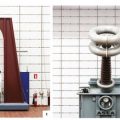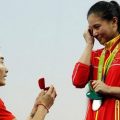随着PTE考生对PTE口语和PTE听力的重视,大家口语和听力的分数得到极大提高,但是PTE阅读渐渐成为考生们新的难题。
墨尔本悉尼文波PTE特别为PTE考生们挑选了适合练习PTE阅读的文章,主题,内容,长度都与PTE阅读题中的文章相似。激活学过的词汇,更新新的词汇,提高阅读速度,全面提升自己的阅读能力。
New research suggests it is possible to slow or even reverse aging, at least in mice, by undoing changes in gene activity—the same kinds of changes that are caused by decades of life in humans.
By tweaking genes that turn adult cells back into embryoniclike ones, researchers at the Salk Institute for Biological Studies reversed the aging of mouse and human cells in vitro, extended the life of a mouse with an accelerated-aging condition and successfully promoted recovery from an injury in a middle-aged mouse, according to a study published Thursday in Cell.
The study adds weight to the scientific argument that aging is largely a process of so-called epigenetic changes, alterations that make genes more active or less so. Over the course of life cell-activity regulators get added to or removed from genes. In humans those changes can be caused by smoking, pollution or other environmental factors—which dial the genes’ activities up or down. As these changes accumulate, our muscles weaken, our minds slow down and we become more vulnerable to diseases.
The new study suggests the possibility of reversing at least some of these changes, a process researchers think they may eventually get to work in living humans. “Aging is something plastic that we can manipulate,” says Juan Carlos Izpisua Belmonte, the study’s senior author and an expert in gene expression at Salk. In their study Belmonte and his colleagues rejuvenated cells by turning on, for a short period of time, four genes that have the capacity to convert adult cells back into an embryoniclike state.
In living mice they activated the four genes (known as “Yamanaka factors,” for researcher Shinya Yamanaka, the Nobelist who discovered their combined potential in 2006). This approach rejuvenated damaged muscles and the pancreas in a middle-aged mouse, and extended by 30 percent the life span of a mouse with a genetic mutation responsible for Hutchinson–Gilford progeria syndrome, which causes rapid aging in children.
Tweak: n. 扭,拧;vt. 扭。
Embryoniclike: n. 干细胞。
Epigenetic: n. 后生的,外成的。
rejuvenate: vt. 使年轻,使复原。
Pancreas: n. 胰腺。
Progeria: n. 儿童的早衰症,早老。
Syndrome: n.[临床]综合症状,并发症。
墨尔本悉尼文波PTE原创首发
更多精彩请持续关注微信wenbo_tv2。





